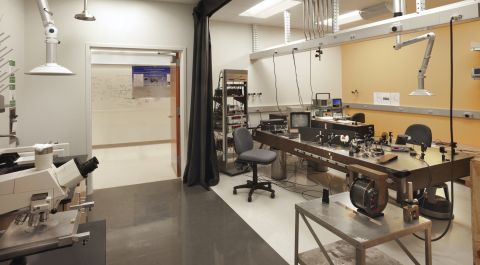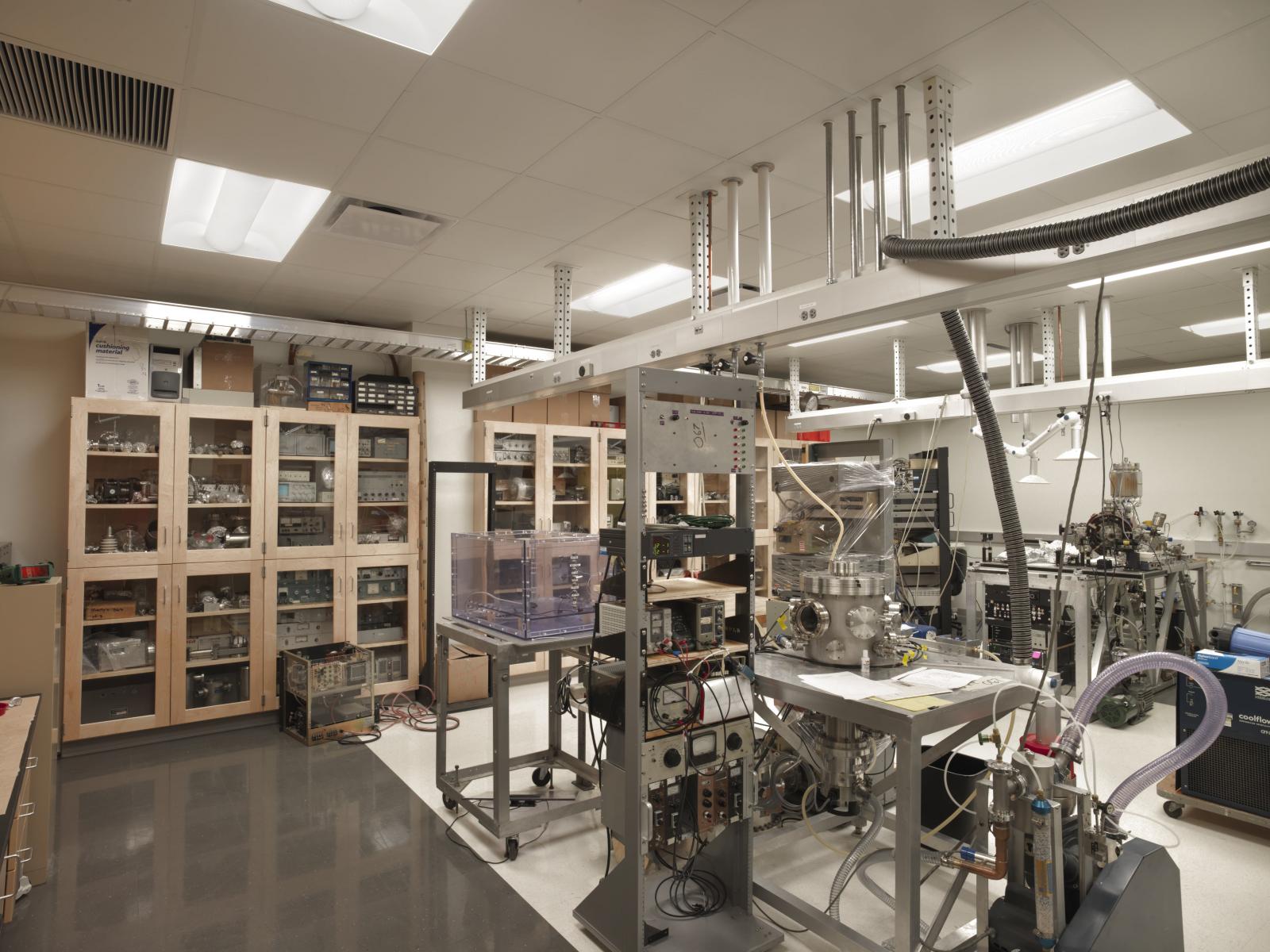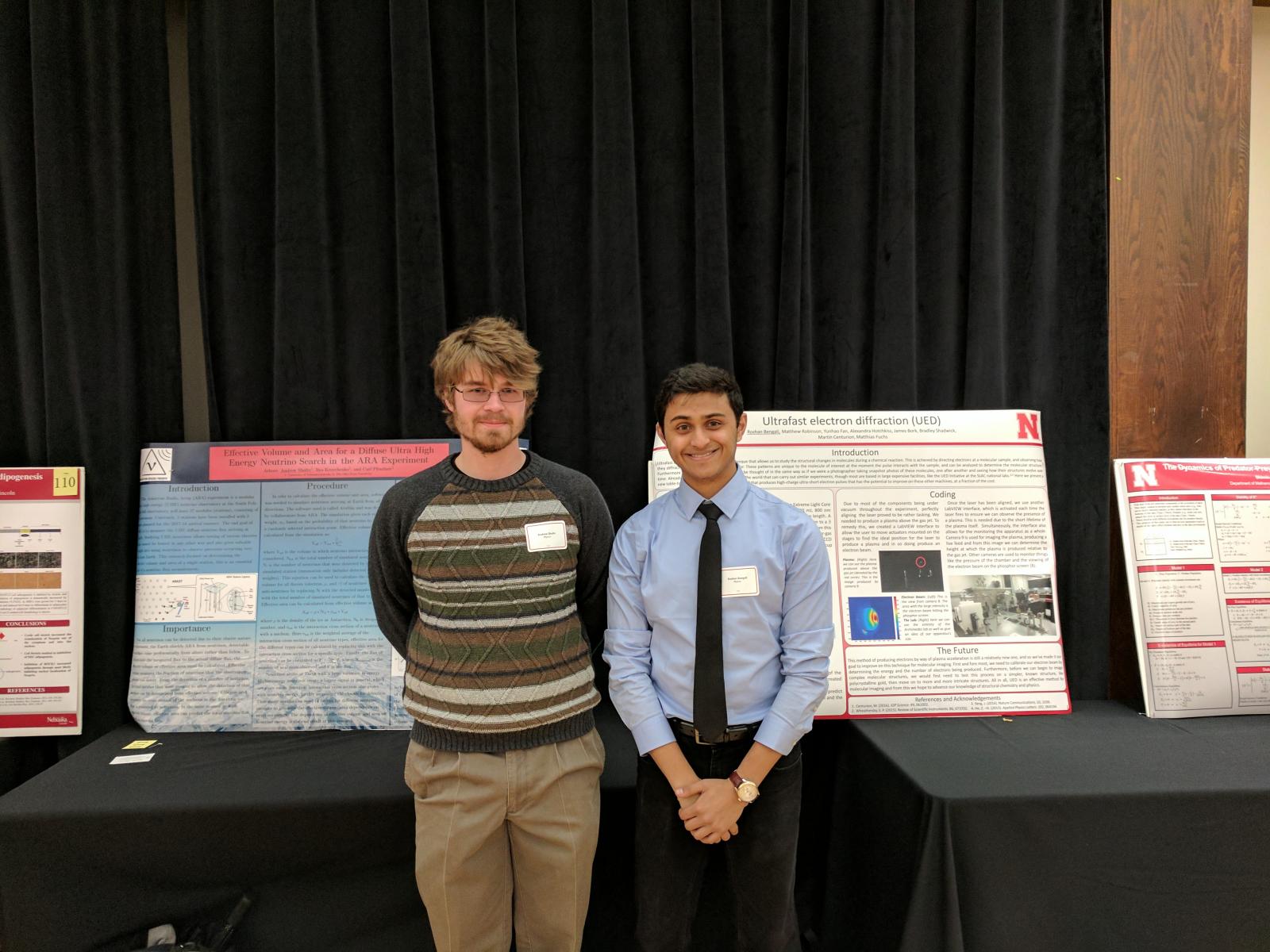How can you get involved in research?
First, do well in your classes. If your GPA is below 3.0, you should be concentrating on academics.
Then, go knocking on doors. You can find out what faculty members are working on by consulting the Research section of the Physics website. Professors are usually happy to spend a few minutes with you to talk about their research, whether or not they have a position available at the moment.
Available positions can be quite variable and different research groups are looking for different skills at different times. If professors get to know you, they can keep you in mind for openings.
The Society of Physics Students is now working to maintain a list of available research positions.

“The most important part of my education was gaining experience as a researcher. I learned many skills that make me a useful member of a research group. I also gained experience in mentoring younger students and teaching them the skills I learned as a young lab member.”
Alumnus Cameron Bravo
Fund your research through UCARE
Undergraduates may receive funding for their research through a special program designed specifically to allow students to work one-on-one with faculty. The Undergraduate Creative Activities and Research Experience (UCARE) provides undergraduates with a stipend of $2,400 over the academic year or summer for a commitment of certain hours and expectations determined by the UCARE program.
Current Physics & Astronomy UCARE recipients
Tatiana Startseva
Simultaneous Calibration of Antenna Locations and n(z) for the Radio Neutrino Observatory in Greenland
Faculty sponsor: Ilya Kravchenko
JJ Silva
Photodetachment of Ps- ion by oppositely polarized attosecond laser pulses
Faculty sponsor: Peisi Huang
Hailey Anderson
Exploring Electronic Phenomenon in Heterostructure of van der Waals Layered CulnP2S6 and Ferroelectric Oxide
Faculty sponsor: Xia Hong
Ruthi Zielinski
Electronic transport phenomena in boron carable films
Amir Tarkian & Bryce Herrington
Magnetic properties of Ta/Cox(FeB)1-x/Pt films and Fe-Ge nanostructures
Faculty sponsor: Robert Streubel
Research experiences for undergraduates outside of the university
National Science Foundation Research Experiences for Undergraduates
This site allows students to choose from one of 19 topics, such as Physics, Astronomical Sciences, and Materials Research. There is also a search function that accepts keywords and choice of states for over 170 programs. Summer REU programs typically have deadlines in February and March and selection in March and April.
Department of Defense STEM Internships
Programs ranging from the Air Force Rome Laboratory to the NSA. Over 40 programs. DOD Pathways Programs include internships for current students and recruiting for recent graduates interested in civilian careers with the DOD.
American Physical Society Internships and Fellowships
The Internships and Fellowships-American Physical Society page has programs that are not listed at any of the above sites, such as the LIGO Institute, The Smithsonian Minority Awards and Internships, and the SRI International, and more.
NASA Internships, Fellowships, and Scholarships include a wide range of opportunities for summer and academic year internships with NASA Programs. NASA Pathways Programs include internship and recruitment opportunities potentially leading to careers with NASA.
Research Experiences for Undergraduates at Nebraska

Nebraska offers a number of research opportunities for undergraduates from around the nation to participate in summer research. These Research Experiences for Undergraduates (REU) allow students to work one-on-one with faculty. Students receive a stipend and other benefits in exchange for their research. See REU home pages for details about particular experiences.
